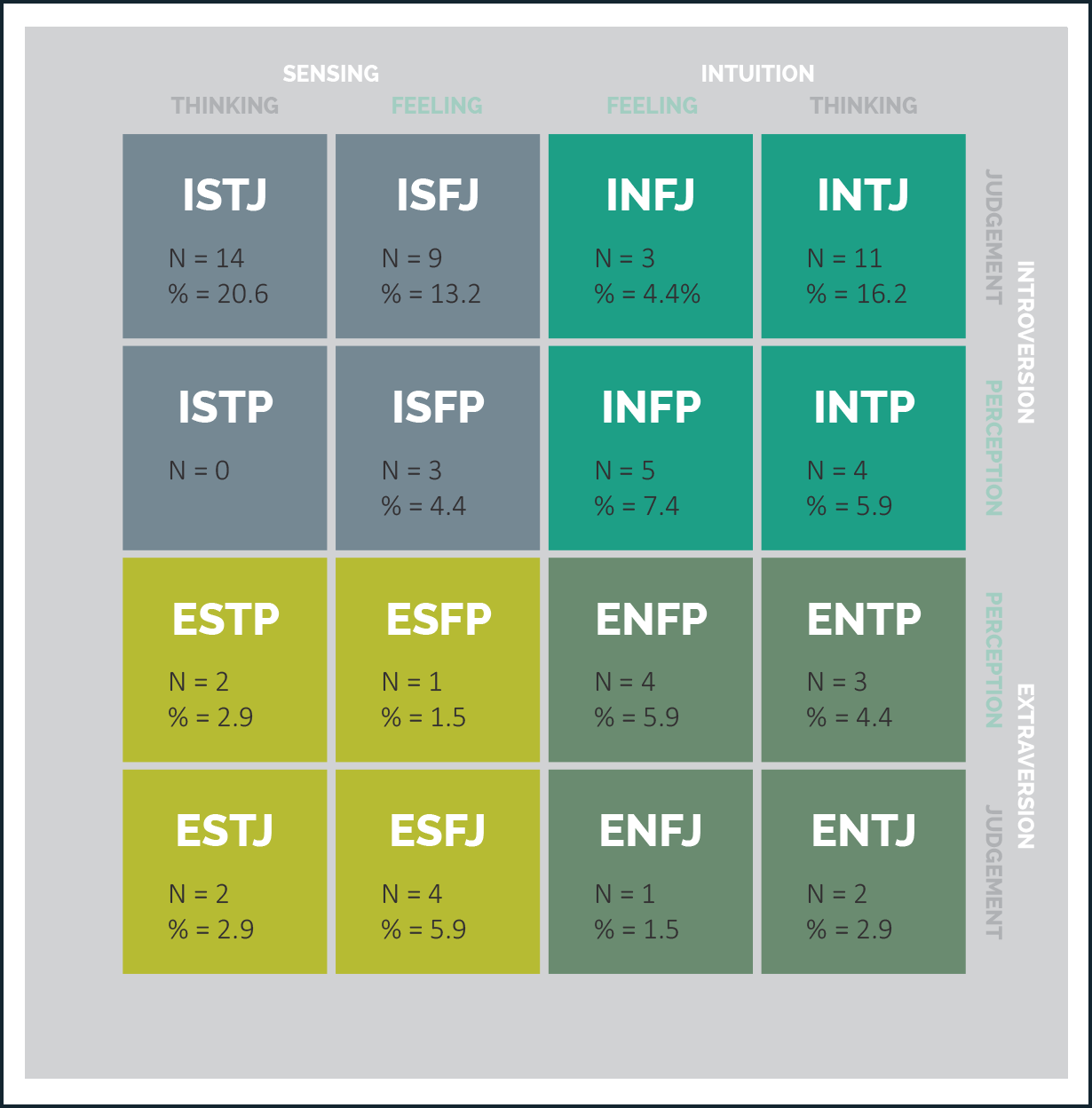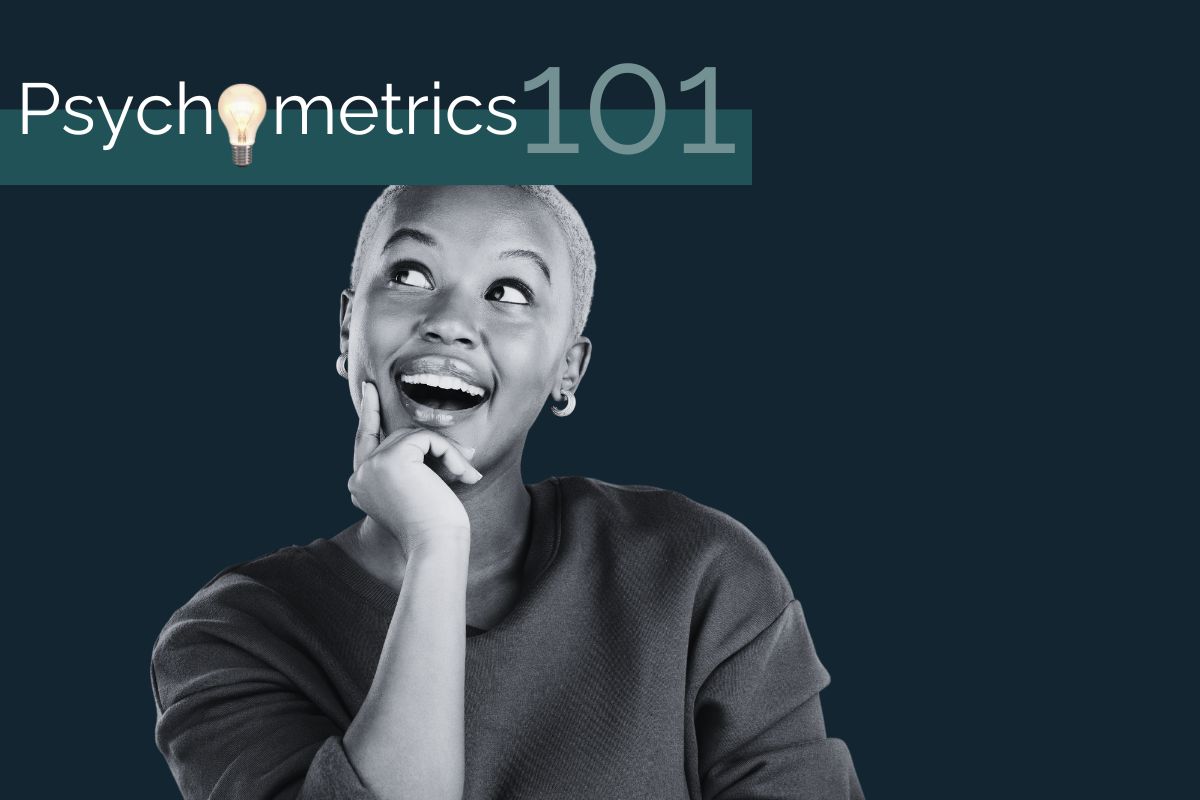Authors: Kleinjan Redelinghuys & Andrea Swanepoel
Psychometric assessments are powerful tools used to measure various psychological constructs, from personality traits and cognitive abilities to values, interests, and mental well-being. These scientifically designed tests help individuals and organisations get objective insights into behaviour, decision-making, and potential. These assessments help you to go beyond hunches and gut-feels to science-backed insights. Whether used in hiring, career development, education, or mental health, psychometric assessments provide valuable data to support informed choices.
Whether applied in hiring, career development, education, or mental health, the different types of psychometric assessments play a crucial role in understanding human behaviour, identifying potential, and supporting growth.
In this post, we explore the main types of psychometric assessments, explain what they measure, how they’re used, and why they matter. But first, let’s define an important concept behind these tools: psychological constructs.
What is a psychological construct?
A psychological construct is something that cannot be directly observed or measured. For example, unlike weight which can be measured with a scale, one cannot measure a person’s personality (or other traits like resilience) directly. However, through questionnaires, one can get a reasonable understanding of how a person may typically think and behave in a specific context by looking at their answers to different questions. These psychological constructs help us make sense of human behaviour in a structured, scientific way.
The primary types of assessments:
Each type of assessment focuses on a specific area of human functioning. Below, we outline the key types of psychometric assessments, including common tools used in practice.
Personality assessment
A personality assessment is a tool used to measure and evaluate your characteristic patterns of thoughts, emotions, and behaviours. These assessments help identify traits like introversion or extraversion, openness to experience, or emotional stability. They are often used in workplaces, therapy, and research to better understand how people interact with others, make decisions, and respond to different situations.
Examples of personality assessments include:

Cognitive ability/aptitude/reasoning/intelligence tests
Cognitive assessments measure a person’s ability to think, learn, and solve problems. These tests evaluate various cognitive skills, such as memory, attention, processing speed, problem-solving, and reasoning abilities. They are commonly used in education, recruitment, and clinical settings to assess intellectual potential, identify learning difficulties, and support career or development decisions.
There are different types of cognitive assessments, each focusing on specific mental abilities:
Aptitude tests measure an individual’s potential to develop certain skills, such as numerical reasoning or logical problem-solving.
Reasoning tests assess how well a person can analyse information and draw conclusions, including abstract, mechanical, spatial, and verbal reasoning.
Intelligence tests (IQ tests) provide a broad measure of cognitive ability, often used to predict academic or professional success.
These assessments provide valuable insights into how individuals process information, adapt to new situations, and perform in different environments. They are widely used in hiring decisions, career guidance, and educational placements.

Values questionnaires
People who are most satisfied with their work are in careers where most of their values are being met, while people who are most dissatisfied with their careers have values that clash with their jobs. Values questionnaires are designed to provide an individual with information about what is important in their work or career. This information can be used in individual career counselling and planning to structure the exploration of the relative importance of a client’s values.
Examples of values questionnaires include:
Interests questionnaires
Interest assessments identify an individual’s preferences or interests in a particular field to make their career a source of satisfaction and motivation.
Examples of career interest assessments include:
Mental health/screening
Mental health assessments help identify if a person is struggling with mental issues such as depression or anxiety.
Examples of mental health assessments include:
Davidson Trauma Scale (DTS™)
Neuropsychology tools
Neuropsychological assessments help identify cognitive and neurological conditions that affect brain function, such as memory loss, attention deficits, or executive dysfunction. These tools are commonly used in clinical settings to assess individuals with traumatic brain injuries, strokes, or neurodegenerative disorders like Alzheimer’s disease. They are also valuable in educational settings to diagnose learning difficulties and developmental delays.
Examples of neuropsychological tools include:
Educational/Developmental assessments
Educational and developmental assessments help identify learning challenges, developmental delays, and cognitive strengths in children and adolescents. Used by psychologists, educators, and healthcare professionals, these assessments evaluate skills such as language development, motor coordination, memory, and problem-solving abilities. They play a crucial role in diagnosing conditions like dyslexia, ADHD, and autism spectrum disorders, ensuring that children receive tailored support and interventions. In schools, these assessments help educators adapt teaching strategies to meet individual learning needs, fostering academic success and overall well-being.
Examples of educational/developmental assessments include:
• Bayley Scales of Infant and Toddler Development®
• Bender® Visual-Motor Gestalt Test
• Achenbach System of Empirically Based Assessment (ASEBA)
Wellbeing/Engagement
Assessing wellbeing can identify an individual’s risk for professional burnout. It assists individuals and companies to manage their emotional health. Engaged individuals are more likely to enjoy their job and perform well.
Examples of wellbeing and engagement tools include:
 Why the Different Types of Psychometric Assessments Matter
Why the Different Types of Psychometric Assessments Matter
Psychometric assessments provide a structured, reliable way to understand who people are, how they think, and what drives them. When organisations use the right types of psychometric assessments, they can make better hiring decisions, improve employee development, and support mental wellness.
Individuals, in turn, can gain deeper insight into their values, strengths, and potential career paths. Psychologists and practitioners also benefit by using data to support diagnoses, interventions, and treatment plans.
Final Thoughts
Understanding the types of psychometric assessments available—and what each measures—is key to using them effectively. From personality and cognitive assessments to tools that measure mental health, interests, and well-being, these instruments provide invaluable insights that help individuals and organisations thrive.
Share this post
Newsletter
Get up-to-date industry news right in your inbox



